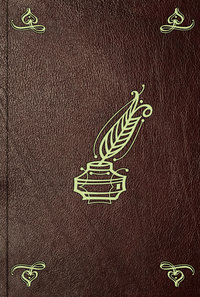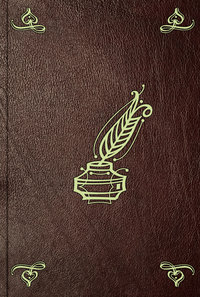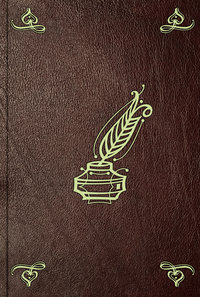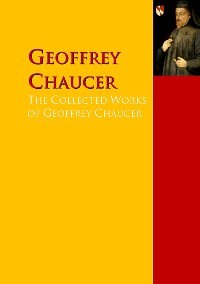 полная версия
полная версияThe Works of John Dryden, now first collected in eighteen volumes. Volume 18
1
Mr Malone observes, that, according to Antony Wood, (Ath. Oxon. ii. 423.) this was not said of Waller, but by that poet, of Sir John Denham. – “In the latter end of the year 1641, Sir John published the tragedy called the ‘Sophy,’ which took extremely much, and was admired by all ingenious men, particularly by Edmund Waller of Beaconsfield, who then said of the author, that he broke out, like the Irish rebellion, threescore thousand strong, before any body was aware, or the least suspected it.” Mr Malone adds, that the observation is more applicable to Denham than to Waller; for Denham, from the age of sixteen, when he went to Trinity College, in Oxford, November 18, 1631, to the time of his father’s death, January 6, 1638-9, was considered as a dull and dissipated young man; whereas Waller distinguished himself, as a poet, before he was eighteen. Besides, the “Sophy” was published just when the Irish rebellion broke out.
2
In one passage of the Dialogue, our author’s version of the sixth satire of Juvenal is mentioned with commendation; and in another, the tragedy of “Aureng-Zebe” is quoted.
3
St Evremont wrote “Observations on Segrais’ Translation of Virgil.”
4
– “He at Philippi keptHis sword even like a dancer; —– he aloneDealt on lieutenancy, and no practice hadIn the brave squares of war.”Antony and Cleopatra.5
A tragedy by Racine. St Evremont, in a dissertation on this play, addressed to Madame Borneau, severely reprobates the fault so common in French tragedy, of making a play, though the scene is laid in ancient Rome or India, centre and turn upon Parisian manners. He concludes, that Corneille is the only author of the nation that displays a true taste for antiquity.
6
The full title is, “The History of Polybius the Megalopolitan; containing a general Account of the Transactions of the World, and principally of the Roman People during the first and second Punic Wars. Translated by Sir H.S. To which is added a Character of Polybius and his Writings, by Mr Dryden, 1693.”
7
Where he enumerates the translators of Lucian in the Supplement to his Life.
8
Vol. VIII. p. 203.
9
“History of Polybius, the five first bookes entire, with all the parcels of subsequent bookes unto the eighteenth, according to the Greeke original. Also, the manner of the Romane encamping. Translated into English, by Edward Grimestone, sergeant at armes.” London, 1634. Folio.
10
From these expressions, one would suppose Sir Henry Shere to have been a seaman, which may also be conjectured from his writing an “Essay on the certainty and causes of the Earth’s Motion on its Axis;” and a “Discourse concerning the Mediterranean Sea and the Straits of Gibraltar;” the one published in 1698, the other in 1705. The naval and military professions were, however, formerly accounted less absolutely distinct branches of service than at present. Many officers distinguished themselves in both. Mr Malone may therefore be right in conjecturing Sir Henry Shere to have been a soldier, though his studies would argue him a seaman or engineer.
11
Polybii Lycortæ F. Megalopolites Historiarum Libri, qui supersunt, Gr. Lat. Isaacus Casaubonus, ex antiquis libris emendavit, Lat. vertit et commentariis illustravit. Accessit Æneæ vetustissimi Tactici commentarius de toleranda obsidione. Isaaeus Casaubonus primus vulgavit, Latinam interpretationem ac notas adjecit. Parisiis, 1609, Folio.
12
“The fame of Nicholas the Fifth, (who sat in the papal chair from 1447 to 1455,) has not,” says Mr Gibbon, —Decline and Fall of the Roman Empire, vi. 429, 4to.) “been adequate to his merits. From a plebeian origin, he raised himself, by his virtue and learning. The character of the man prevailed over the interests of the pope; and he sharpened those weapons, which were soon pointed against the Roman church. He had been the friend of the most eminent scholars of the age; he became their patron; and such was the humility of his manners, that the change was scarcely discernible, either to them or to himself. If he pressed the acceptance of a liberal gift, it was not as the measure of desert, but as the proof of benevolence; and when modest merit declined his bounty, ‘Accept it,’ would he say, with a consciousness of his own worth; ‘you will not always have a Nicholas among ye.’ The influence of the holy see pervaded Christendom; and he exerted that influence in the search, not of benefices, but of books. From the ruins of the Byzantine libraries, from the darkest monasteries of Germany and Britain, he collected the dusty manuscripts of the writers of antiquity; and wherever the original could not be removed, a faithful copy was transcribed, and transmitted for his use. The Vatican, the old repository for bulls and legends, for superstition and forgery, was daily replenished with more precious furniture; and such was the industry of Nicholas, that, in a reign of eight years, he formed a library of five thousand volumes. To his munificence, the Latin world was indebted for the versions of Xenophon, Diodorus, Polybius, Thucydides, Herodotus, and Appian; of Strabo’s Geography; of the Iliad; of the most valuable works of Plato and Aristotle; of Ptolemy and Theophrastus; and of the fathers of the Greek church. The example of the Roman pontiff was preceded, or imitated, by a Florentine merchant, who governed the republic without arms, and without a title. Cosmo, of Medicis, was the father of a line of princes, whose name and age are almost synonymous with the restoration of learning. His credit was ennobled into fame; his riches were dedicated to the service of mankind; he corresponded at once with Cairo and London, and a cargo of Indian spices and Greek books was imported in the same vessel. The genius and education of his grandson, Lorenzo, rendered him not only a patron, but a judge and candidate in the literary race. In his palace, distress was entitled to relief, and merit to reward. His leisure hours were delightfully spent in the Platonic academy; he encouraged the emulation of Demetrius Chalcocondyles and Angelo Politian; and his active missionary, Janus Lascaris, returned from the East with a treasure of two hundred manuscripts, fourscore of which were as yet unknown in the libraries of Europe. The rest of Italy was animated by a similar spirit, and the progress of the nation repaid the liberality of the princes. The Latins held the exclusive property of their own literature; and these disciples of Greece were soon capable of transmitting and improving the lessons which they had imbibed. After a short succession of foreign teachers, the tide of emigration subsided; but the language of Constantinople was spread beyond the Alps; and the natives of France, Germany, and England, imparted to their country the sacred fire which they had kindled in the schools of Florence and Rome.”
13
Our author recollected the following panegyric on Pope Nicholas, in the Dedication of Casaubon’s edition of Polybius, to Henry IV. of France:
“Quum enim a pluribus retro sæculis, in principum animis, toto Occidente, amor politioris literaturæ et Græci sermonis excoluisset; accidit non sine numine profecto, ut circa illa ipsa tempora Byzantinæ cladis, et paullo ante, summi in Europa viri et principes generossissimi hunc veternum ceu virgula divina tacti, opportune excuterent, et ad bene merendum de studiis politioribus et de linguis, ardore incredibili accenderentur. Prima terrarum Italia ad hanc palmam occupandam, è diuturno torpore tunc demum expergefacta, sese concitavit, et nationibus aliis per Europam, exemplum quod imitarentur præbuit. In ipsa verò Italia, ad certamen adeo gloriosum, Nicolaus Quintus Pontifex Maximus, in cujus extrema tempora Byzantini imperii eversio incidit, princeps, quod equidem sciam, signum sustulit. Nam et literarum dicitur fuisse intelligentissimus; et, quod res arguit, earum amore erat flagrantissimus. Primus hic, illa ætate, libros antiquorum scriptorum sedulo conquirere curæ habuit; magnamque earum copiam in Vaticanam intulit; primus cum assiduis hortatibus, tum ingentibus etiam propositis præmiis, ad meliorem literaturam è tenebris oblivionis in lucem revocandam, homines Italos stimulavit: primus, Græcæ linguæ auctores omnis sincerioris doctrinæ esse promos condos qui uon ignoraret, ut Latino sermone exprimerentur, vehementissime optavit, et efficere contendit.”
14
That is, the first five books.
15
Polybius, the historian, was born at Megalopolis, in Arcadia, in the fourth year of the 143d Olympiad, about 205 years before the Christian æra. Being carried to Rome as an hostage, he became the companion and friend of the younger Scipio Africanus; accompanied him in his campaigns; and is said to have witnessed the destruction of Carthage, in the 158th Olympiad. Having returned to his native country, he died in the 164th Olympiad, 124 years before Christ, in consequence of a fall from his horse.
The history of Polybius embraced the space from the first year of the 140th to the first of the 153d Olympiad, being fifty-three years.
16
Nicolo Peretti published a Latin version of the first five books of Polybius, at Rome, in 1473, folio. The first Greek edition appeared in 1530; the second at Basle, in 1549. The last is most esteemed.
17
“Plutarch tells us, that Brutus was thus employed the day before the battle of Pharsalia. ‘It was the middle of summer; the heats were intense, the marshy situation of the camp disagreeable, and his tent-bearers were long in coming. Nevertheless, though extremely harassed and fatigued, he did not anoint himself till noon; and then taking a morsel of bread, while others were at rest, or musing on the event of the ensuing day, he employed himself till the evening in writing an epitome of Polybius.” – Malone.
18
With a thousand of his countrymen, whom the Romans ordered thither as hostages, after the conquest of Macedonia.
19
A. U. C. 608.
20
A. U. C. 607.
21
The word and renders this passage ungrammatical. – Malone.
22
Mr Malone justly conjectures, that Dryden here thought of his old master James II., whose economy bordered on penury, and whose claims of prerogative approached to tyranny.
23
Philip de Commines, author of the excellent Memoirs of his own time. He was born in Flanders, and was for several years a distinguished ornament of the court of Charles the Bold, Duke of Burgundy, his native sovereign; but was tempted to divert his service for that of Louis XI. by whom he was employed in several negociations. After the death of that monarch, Commines fell into disgrace with his successor, and was long detained in prison: he died in 1509. It was of this historian Catherine de Medicis was wont to say, “that he made as many heretics in the state, as Luther in the Church.”
24
In the year of Rome 568.
25
I believe the most enthusiastic admirers of Livy must tire of these unvaried prodigies. Et bos locutus occurs as often, and is mentioned with as much indifference, as a nomination of sheriffs in Hall, Stowe, or Speed.
26
See Vol. XIII. p. 68. where our author, in his “Essay on Satire,” controverts keenly the position of Casaubon.
27
In his thirty-eight year, forty-three being the legal age.
28
The elegant translator, however, gives us no information on that subject; his preface being principally a panegyric upon good discipline, which, without much risque of contradiction, he affirms to be the “substance and sum total of military science.”
29
Thomas Stanley’s “History of Philosophy,” &c. was published in folio, in detached parts, between 1655 and 1660; and reprinted entire in 1687.
30
A. D. 375. Rufinus was chief prefect of the East. The person here alluded to was only count of fifteen provinces. Dryden, writing from memory, confounded the offices of the murderer and murdered. See the next note.
31
Gibbon thus narrates the catastrophe: – “The extreme parsimony of Rufinus left him only the reproach and envy of ill-gotten wealth. His dependents served him without attachment; the universal hatred of mankind was repressed only by the influence of servile fear. The fate of Lucian proclaimed to the East, that the prefect, whose industry was much abated in the dispatch of ordinary business, was active and indefatigable in the pursuit of revenge. Lucian, (the son of the prefect Florentius, the oppressor of Gaul, and the enemy of Julian,) had employed a considerable part of his inheritance, the fruit of rapine and corruption, to purchase the friendship of Rufinus, and the high office of Count of the East. But the new magistrate imprudently departed from the maxims of the court and of the times; disgraced his benefactor, by the contrast of a virtuous and temperate administration; and presumed to refuse an act of injustice, which might have tended to the profit of the emperor’s uncle. Arcadius was easily persuaded to resent the supposed insult; and the prefect of the East resolved to execute in person the cruel vengeance which he meditated against this ungrateful delegate of his power. He performed, with incessant speed, the journey of seven or eight hundred miles, from Constantinople to Antioch, entered the capital of Syria at the dead of night, and spread universal consternation among a people ignorant of his design, but not ignorant of his character. The count of the fifteen provinces of the East was dragged, like the vilest malefactor, before the arbitrary tribunal of Rufinus. Notwithstanding the clearest evidence of his integrity, which was not impeached even by the voice of an accuser, Lucian was condemned, almost without a trial, to suffer a cruel and ignominious punishment. The ministers of the tyrant, by the order, and in the presence, of their master, beat him on the neck with leather thongs, armed at the extremities with lead; and when he fainted under the violence of the pain, he was removed in a close litter to conceal his dying agonies from the eyes of the indignant city. No sooner had Rufinus perpetrated this inhuman act, the sole object of his expedition, than he returned amidst the deep and silent curses of a trembling people, from Antioch to Constantinople; and his diligence was accelerated by the hope of accomplishing, without delay, the nuptials of his daughter with the emperor of the East.” – Gibbon’s Decline and Fall of the Roman Empire, vol. iii. p. 209.
The punctuation throughout this piece is so inaccurate, and the paragraphs so strangely divided, that it must have been printed from a copy very carelessly written. In the present passage, we find Rafiany, instead of Rufinus. Malone.
32
A. D. 312. He suffered for favouring the Arians. Malone.
33
A. D. 415. He was minister of Caphargamala, and pretended to have been instructed by a dream of the burial place of the proto-martyr Stephen, Gamaliel, and other saints. See Gibbon’s History, vol. iii. p. 97.
Several other persons of this name, besides those here mentioned, are enumerated by Fabricius. Bibl. Græc. iv. 508.
34
Dr Franklin seems disposed to fix on the year 90.
35
Procurator principis. Under Marcus Aurelius.
36
See Juv. sat. i. 44.; vii. 148.; xv. 111. Quintil. lib. x. cap. 3.
37
Dr Jasper Mayne, who published a translation of some select dialogues of Lucian, in folio, in 1664.
38
I follow Mr Malone in reading might; the printed copy has must.
39
This is a gross mistake, 180 years intervening between the death of Aurelius and the reign of Julian.
40
Nicolas Perrot, Sieur d’Ablancourt, whose translation of the Dialogues of Lucian into French was first published at Paris in 1634. His continuation of the true history of Lucian is very much in the tone of the original.
41
This observation had been made by Gilbertas Cognatus, and by Thomas Hickes, in his Life of Lucian, printed in 1634. Malone.
42
Entitled “Philopatris.” The Christian religion, and its mysteries, are ridiculed in this piece with very little ceremony.
43
Gesner has written a long Latin essay upon this point, which is subjoined to the third volume of Lucian’s works, in the 4to edition of Hemsterhucius.
44
I follow Mr Malone in reading eclectic for elective.
45
The best judges have condemned Εταιρικοι Διαλογοι, or “Dialogues of the Harlots,” as not being genuine. They are at any rate gross and devoid of humour.
46
I presume a cant phrase for a graft from that garden of knowledge.
47
The work alluded to, which was written by the Rev. Dr John Eachard, (Master of Catharine Hall, in Cambridge, and author of the “Grounds of the Contempt of the Clergy,”) was published in 1671, and was entitled “Mr Hobbes’s State of Nature considered; in a Dialogue between Philautus and Timothy.” Malone.
48
This gentleman, whom our author has again mentioned with esteem, in the “Parallel of Poetry and Painting,” (Vol. XVII. p. 312.) was the son of Sir Walter Moyle, and was born in the year 1672. He was educated to the study of law, and became a member of Parliament in 1695. He composed a variety of treatises, on various subjects, which are comprised in a collection of three volumes 8vo, the last being posthumous. Mr Moyle died in 1721.
49
Charles Blount, the son of Sir Henry, and brother to Sir Edward Pope Blount. He early appeared as a defender and admirer of Dryden, by publishing an answer to Leigh’s “Censure of the Rota in the Conquest of Granada.” It was entitled, “Mr Dryden vindicated, in Reply to the Friendly Vindication of Mr Dryden, with Reflections on the Rota.” Mr Blount distinguished himself as a friend to civil liberty during the crisis preceding the Revolution; but was still better known by the deistical tracts entitled “Anima Mundi,” “Life of Appolonius Tyaneus,” “Diana of the Ephesians,” and the “Religio Laici,” which last he published anonymously in 1683, and inscribed to our author.
The death of Blount was voluntary. Having lost his wife, the daughter of Sir Timothy Tyrrel of Shotover, he fell in love with her sister, and being unable to remove her scruples upon the lawfulness of their union, shot himself in a fit of despair, in August 1693. His miscellaneous works were published by Galden in 1695.
He was a man of deep and extensive reading, and probably better qualified, in point of learning, to translate Lucian, than most of his coadjutors.
50
This and two or three other passages shew, that this life was written hastily, and that it had not been carefully revised by the author. Malone.
51
Ferrand Spence, who published a translation of Lucian’s Dialogues in four volumes, 8vo, in 1684.
52
Francis Hickes published a translation of Select Dialogues from Lucian, 4to, 1634.
53
Vol XVII. p. 1.
54
Mr Malone substitutes lost for left.
55
The lady to whom this letter is addressed was our author’s first cousin, one of the daughters of his uncle, Sir John Dryden. She probably was born, (says Mr Malone,) about the year 1637, and died, unmarried, some time after 1707.
The seal, (he adds,) under which runs a piece of blue ribband, is a crest of a demi-lion, on a wreath, holding in his paws an armillary sphere at the end of a stand. The letter seems in reply to one from the fair lady, with a present of writing materials. It is a woeful sample of the gallantry of the time, alternately coarse and pedantic.
56
Person quasi parson, which word was originally so spelled. The custom of preaching by an hour-glass has been before noticed.
57
A copy of this letter is in the Museum, MSS. Harl. 7003. The Dedication alluded to, must have been that of “Marriage A-la-Mode,” to which Rochester had replied by a letter of thanks; and we have here Dryden’s reply. (See Vol. I. p. 181, and Vol. IV. p. 235.) The date is supplied by Mr Malone from internal evidence.
58
Lord Rochester translated some part of Lucretius.
59
In the year 1672, Monsieur Schomberg was invited into England to command the army raised for the Dutch war, then encamped on Blackheath. He was to be joined in this command with Villiers, Duke of Buckingham, who held a commission of lieutenant-general only. But when Schomberg arrived, he refused to serve equally with Buckingham, and was made general; on which the other resigned his commission in disgust. (See Sheffield, Duke of Buckingham’s Memoirs, p. 5.) Dryden, still smarting under the “Rehearsal,” just then come out, was probably not sorry to take this opportunity to turn the author’s pretensions into ridicule.
60
Eight thousand land forces were embarked on board the English fleet to make a descent in Zealand.
61
Sir John Eaton was a noted writer of songs at the time.
62
Mr Malone conjectures Tregonwell Frampton, keeper of the royal stud at Newmarket; who was born in 1641, and died in 1727. Brother John must remain in obscurity.
63
Probably the grandson of Sir George Hume, created Earl of Dunbar by James the First, in 1605.
64
Henry Brouncker, younger brother of William, Viscount Brouncker. He was a gentleman of the Duke of York’s bed-chamber, and carried the false order to slacken sail, after the great battle in 1665, when the Duke was asleep, by which the advantage gained in the victory was entirely lost. There is a great cloud over the story; but that Brouncker was an infamous character, must be concluded on all hands. He was expelled the House of Commons; and countenanced by the king more than he deserved, being “never notorious for any thing but the highest degree of impudence, and stooping to the most infamous offices.” – Continuation of Clarendon’s Life, quoted by Malone.
65
Aubery de Vere, the twentieth and last Earl of Oxford, of that family. This nobleman seduced an eminent actress (said, by some authorities, to be Mrs Marshall, but conjectured, by Mr Malone, to have been Mrs Davenport,) to exchange her profession for his protection. The epithet, applied to him in the lines, renders it improbable that he imposed on her by a mock-marriage, though the story is told by Count Hamilton, and others.
66
The Prologue and Epilogue in question may have been those spoken by Mr Hart and Mrs Marshall, (Vol. X. p. 328). But, in this case, the date of their being delivered has been placed too late. Exact accuracy is of little consequence; but I fear the hint in the letter gives some reason for Tom Brown’s alleging, that Dryden flattered alternately the wits of the town at the cost of the university, and the university scholars at the expence of the London audience. I cry that facetious person mercy, for having said there was no proof of his accusation. See Vol. X. p. 113.







